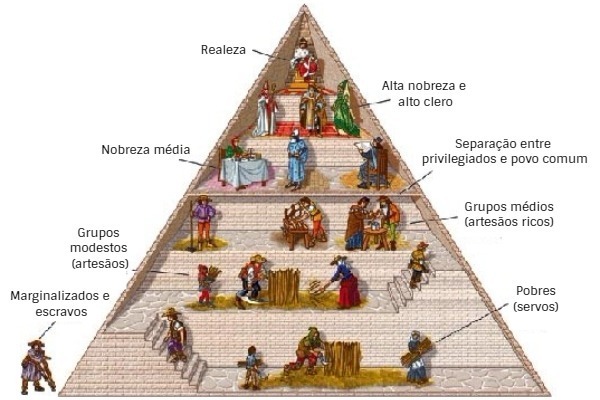Fascist is an adjective that defines something or someone adept at fascism.
The term fascist can qualify anything that is related to the ideals of fascism, be it a person, a regime, an attitude, etc.
It is said that something or someone is fascist when they act in accordance with fascism, a political regime marked by a dictatorial, authoritarian and violent government that gained strength in Europe at the beginning of the 20th century.
Fascism began in Italy in 1921 through a political party led by Benito Mussolini. Before long, the movement spread to other countries in Europe, especially Germany, where it was adopted by Adolf Hitler.
Due to the extremely negative characteristics of fascism, the term fascist is often used as an insult.
Characteristics of a Fascist Person or Regime
The characteristics of a fascist person or regime are:
Emphasis on militarism and the use of force
Fascists believe that the use of force and violence is justifiable to achieve their goals. For this reason, the fascist regimes that took place in Europe devoted disproportionate amounts of resources to arms financing, neglecting other areas such as health and education.
In a fascist government, the police are highly militarized and have the autonomy to deal violently with domestic problems that would not normally require military participation.
Authoritarianism and obsession with punishment
Fascists impose their ideals authoritatively. Fascist governments violently combat any demonstration against the regime and seek to punish as many individuals as possible to discourage the population.
Machismo and Minority Discrimination
Fascists are extremely sexist and prejudiced towards minorities. In Germany, the Nazi regime advocated the exclusion of women from politics. In Fascist Italy, most contraceptive methods were banned and homosexuality was seen as a disease.
Devaluation of human rights
By defending the use of force and violence, fascists tend to devalue human rights. In fascist governments, the protection of liberty, physical integrity or even life is not a priority.
Like the fascist regimes that occurred in Europe, the contempt for human rights was transmitted from the government to the people, who became colluded with violent practices such as arbitrary arrests, torture, public acts of violence and even executions.
exaggerated and paranoid nationalism
Due to fixation with militarism and the use of force, fascists nurture a sense of nationalism exaggerated and paranoid, usually based on a horror speech that provokes the insecurity of the population.
As an example of heightened nationalism, the official slogan of the Nazi regime led by Adolf Hitler in Germany was “Deutschland über alles" which means "Germany above all”. The ideology that resulted in the holocaust killed millions of people in the name of German nationalism.
Use of religion as a form of manipulation
Fascists tend to use the most popular religion in the region to manipulate the people. In Italy, Mussolini, despite being an atheist, incorporated religious discourse into his government to control the masses and remain in power.
fascist quotes
"Fortunately for the government, the people they govern don't think" - Adolf Hitler
“Italy's press is free. Freer than the press of any country, as long as it supports the regime” - Benito Mussolini
“I have never led a government for minorities and never will. It's not good for democracy” - Viktor Orbán
Fascist and Nazi
The adjectives fascist and Nazi are related, respectively, to fascism and Nazism, two distinct political regimes, but with identical values and ideals.
The fascist ideals that emerged in Italy inspired the German Nazi regime, which followed the same model of government, maintaining its ideals, values and characteristics. Thus, it is possible to say that every Nazi is also a fascist.
Fascist or fascist?
Several people have doubts regarding the spelling of this word, specifically between fascist and fascist. As the word derives from the term "fascism", the correct form is fascist and never fascist, since the latter does not exist in the dictionary.
See too:
- Fascism
- Characteristics of Fascism
- Military dictatorship
- totalitarianism

